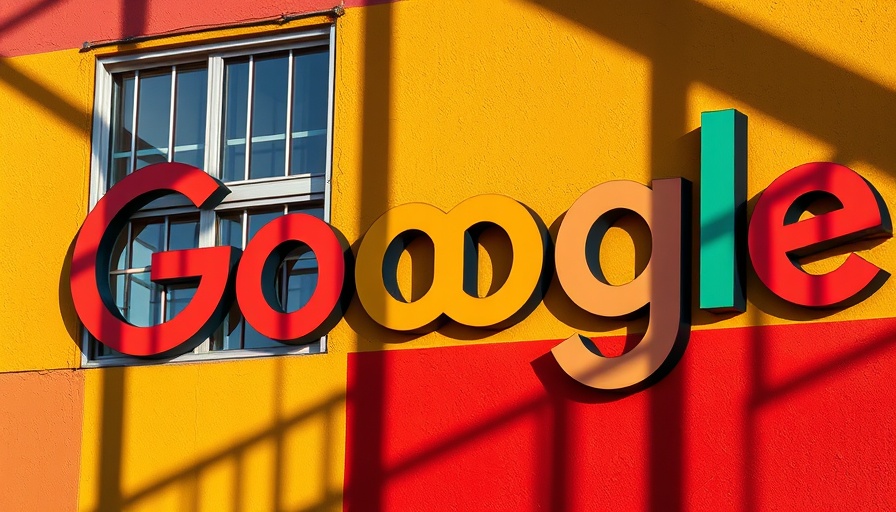
Understanding Google's Expanded Site Reputation Abuse Policy
Google's recent update to its manual actions documentation surrounding site reputation abuse marks a significant pivot in how the search giant addresses content that manipulates Search rankings. The adjustments, initially spotted by Glenn Gabe and discussed widely in digital marketing communities, underscore the importance of recognizing and appropriately handling instances of site reputation abuse.
With this expanded policy, Google clearly outlines what businesses should do when they encounter manual actions due to site reputation abuse. The key takeaway? Avoid using the robots.txt file to block the offending content if you have a noindex rule in place. Instead of taking this outdated approach, moving towards noindexing is the recommended strategy. This shift signifies a move towards more clarity and empowerment for site owners grappling with this complex issue.
Why Noindexing is Crucial for Small Businesses
Noindexing allows webmasters to prevent specific pages from being indexed by search engines without blocking them outright. This is critical for small business owners or marketers concerned about potentially damaging content that could affect their site’s reputation. By utilizing noindex, businesses can mitigate risks while still retaining the content for other non-search engine purposes.
Google's guidance encourages business owners to execute practical steps effectively. Whether it's moving content to a new domain, properly linking between sites using the nofollow attribute, or removing the offending material altogether, these techniques are designed to safeguard your site's integrity and reputation in search results.
Facing the Challenge: Next Steps for Agencies and Marketers
Digital agencies and marketers may find themselves at the forefront of navigating these changes. As more businesses take their SEO strategies seriously, understanding how to handle potential manual actions from Google becomes paramount. The recent site reputation abuse policy emphasizes a proactive approach: identifying content that could potentially harm your site before it becomes an issue.
Moreover, marketers must educate their clients about the implications of hosting third-party content. With Google's tightening grip on site reputation, businesses should prioritize creating original, high-quality content that resonates with their audience, proving that they are worth the trust of both consumers and search engines.
Future Trends: The Transition to Algorithmic Enforcement
While Google has initiated this change with a manual approach, industry insiders anticipate an eventual shift towards algorithmic enforcement of the site reputation abuse policy. This means that as automated systems learn to detect and penalize sites engaged in these practices, businesses must stay ahead of the curve through ethical content practices.
Preparing for future shifts in Google’s algorithm will require businesses to engage with innovative content strategies that prioritize authenticity. This is particularly vital as we witness a rising trend towards the use of AI in content creation. Balancing AI-generated content with genuine human oversight will become a central focus for digital marketers aiming for a competitive edge.
Embracing AI and Ethical Marketing
As AI continues to shape the landscape of digital marketing, small businesses should consider leveraging AI tools for better content creation and audience engagement strategies. This could include automated solutions for content optimization, audience analysis, and proactive damage control in response to negative online sentiment.
By embracing such tools, businesses can maintain an adaptive strategy that aligns with search engine best practices, helping them to navigate Google's evolving policies while solidifying their online presence. Hence, the importance of understanding how AI can be employed ethically alongside Google's guidelines cannot be overstated.
Conclusion: Stay Informed and Proactive
In a rapidly changing digital landscape, it’s vital to stay informed about Google's approaches to site reputation abuse. This expanded policy represents an opportunity for small businesses, agencies, and marketers to proactively address their content strategies. By following Google’s prescribed next steps and employing innovative tools, businesses can better protect their online reputations and thrive in the competitive landscape of search engine optimization.
To safeguard your brand’s digital presence and adapt to shifts in SEO policy, keep your finger on the pulse of changes in search engines and leverage technological innovations in your marketing efforts.
 Add Row
Add Row  Add
Add 




Write A Comment